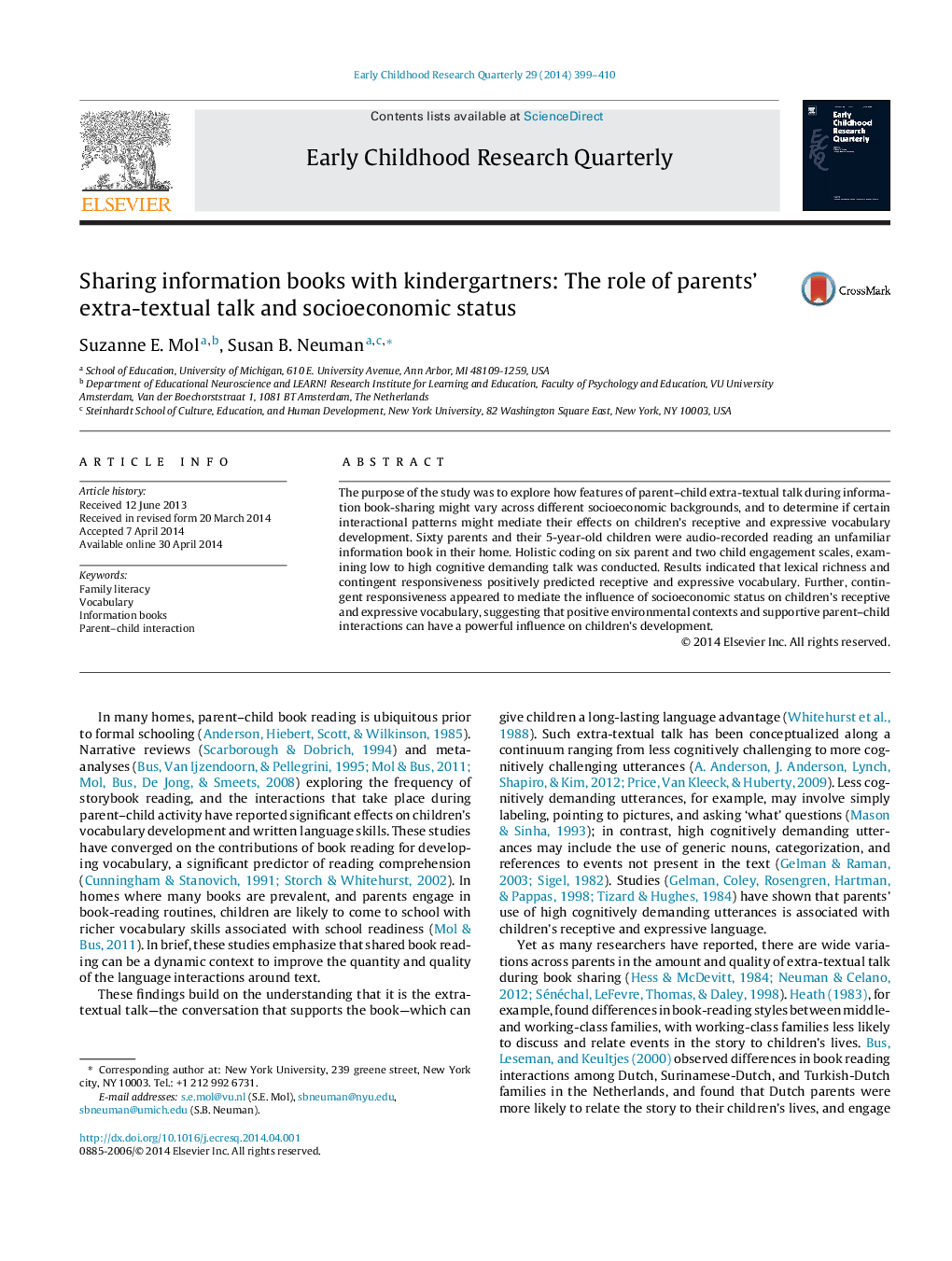| کد مقاله | کد نشریه | سال انتشار | مقاله انگلیسی | نسخه تمام متن |
|---|---|---|---|---|
| 353791 | 618946 | 2014 | 12 صفحه PDF | دانلود رایگان |
• Information books are a valuable source for eliciting high cognitively demanding and responsive extra-textual talk for parents.
• Parents’ contingent responsiveness is reciprocally related to children's willingness to take initiative.
• The role of socioeconomic status on children's receptive and expressive language is mediated by parents’ responsiveness.
• Educational professionals should support greater reading of information books in their parent involvement programs.
• Giving parents strategies to be more responsive to children's cues and interests may affect vocabulary development.
The purpose of the study was to explore how features of parent–child extra-textual talk during information book-sharing might vary across different socioeconomic backgrounds, and to determine if certain interactional patterns might mediate their effects on children's receptive and expressive vocabulary development. Sixty parents and their 5-year-old children were audio-recorded reading an unfamiliar information book in their home. Holistic coding on six parent and two child engagement scales, examining low to high cognitive demanding talk was conducted. Results indicated that lexical richness and contingent responsiveness positively predicted receptive and expressive vocabulary. Further, contingent responsiveness appeared to mediate the influence of socioeconomic status on children's receptive and expressive vocabulary, suggesting that positive environmental contexts and supportive parent–child interactions can have a powerful influence on children's development.
Journal: Early Childhood Research Quarterly - Volume 29, Issue 4, 4th Quarter 2014, Pages 399–410
